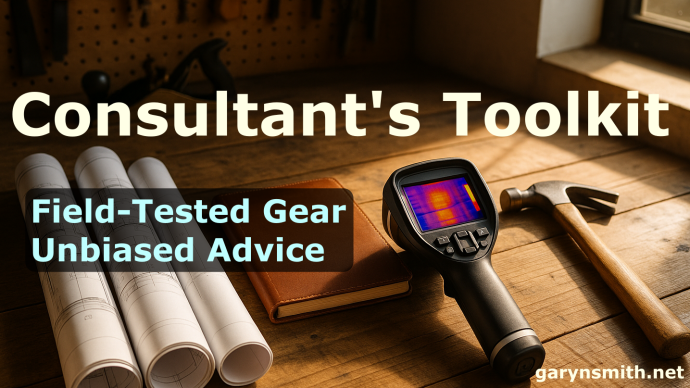Groovy Man! That’s far out, man! Peace, man!
What happens when the output from your favorite LLM habitually produces a style of writing that simply doesn’t sound like you? This isn’t just about grammar; it’s about your unique voice and style of communication.
This question, of course, assumes that you have a voice. Establishing my distinct professional voice didn’t truly click until a few years into my home inspection career. Before that, I was probably trying to sound “professional.” But I quickly learned that developing a unique voice isn’t just an option; you should actively strive to establish, hone, and fiercely protect it, especially now that we’re leveraging powerful LLMs.
How LLMs May Influence Your Voice – Take Care!
I’ve keenly observed a subtle but persistent issue when using tools like Google Gemini and other LLMs: they often push a particular writing style, even when not explicitly prompted.

A typical example in the home inspection context is the consistent tendency to start sentences with “Recommend” rather than “I recommend” or another grammatically appropriate phrase that conveys ownership of an observation. Google Gemini, for instance, frequently defaults to this sentence structure, seemingly as a preferred, concise style, even when I haven’t asked for it.
Another fascinating instance recently popped up when discussing a unique deck support system. In its output, Gemini described an unusual component as a “bespoke solution.” While accurate and professional, the word “bespoke” has seen a notable rise in usage in AI-generated content across various fields. Does that reflect human usage, or are the LLMs driving it?
A more critical question: Are we able to recognize the difference?
This highlights a real phenomenon. LLMs are becoming significant influencers in how we use language and meaning. They are, in essence, “feeding” auto-generated text to the general public, potentially driving linguistic trends and shaping our collective vocabulary in ways we might not fully recognize yet. That has tremendous implications across all forms of private and public communication.
Why This Is Happening and Why It Matters:
LLMs are trained on enormous datasets. They’re taught to identify and replicate patterns, structures, and stylistic conventions. They then parrot them back to us. This can lead to style convergence. Often, those styles aren’t your preferred voice.
In fields like home inspection, AI-powered writing tools are appearing in software and being used to automate report generation. Drafting report comments should be your authentic voice. However, the emphasis on efficiency can, unintentionally, lead to less “human” phrasing in the name of speed and consistency.
My core concern is that reliance on AI tools that promote “similar phrasing” could lead to a homogenization of writing styles for the inspection profession and even general communication. Just as slang like “groovy” or “way out” defined a not-too-distant era (do you remember the 60s?), AI-generated text subtly introduces or popularizes certain words or phrases that might not have been as widely used before. While I don’t believe LLMs overtly dictate language, their presence in content creation can influence linguistic trends.
Navigating This Shift: Tools, Not Replacements
AI writing tools should be seen as powerful assistants, never as replacements for human writers or your unique perspective. To navigate this evolving landscape, consider these four strategies:
- Always, always review and edit AI-generated text. Ensure it aligns precisely with your needs, intended tone, and target audience. Adding that personal touch and ensuring the content reflects your unique voice is paramount.
- Dedicate time to developing and refining your own writing style, even when using AI tools. Your unique voice and perspective are invaluable assets that AI, by its nature, cannot truly replicate. It’s what makes your communication distinctive.
- Leverage AI to generate initial ideas, structure content, or quickly catch grammatical errors and typos. This can free up your time and mental energy to focus on the truly creative, nuanced, and voice-driven aspects of your writing.
- Be aware of the potential ethical implications of using AI in content creation, including originality, plagiarism, and bias. And when appropriate, be transparent about using AI as a tool in your workflow.
So, always prioritize and protect your unique voice and critical judgment, whether you’re an inspector, a builder, or simply navigating life in this ever-evolving world. Because, even as technology advances at a dizzying pace, keeping your communication authentic, you will always be truly groovy.




